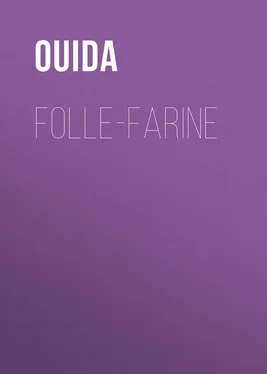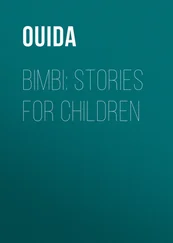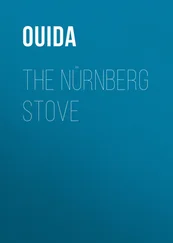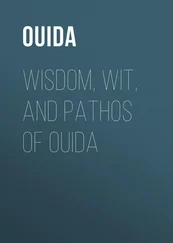Ouida - Folle-Farine
Здесь есть возможность читать онлайн «Ouida - Folle-Farine» — ознакомительный отрывок электронной книги совершенно бесплатно, а после прочтения отрывка купить полную версию. В некоторых случаях можно слушать аудио, скачать через торрент в формате fb2 и присутствует краткое содержание. Жанр: foreign_prose, literature_19, foreign_antique, на английском языке. Описание произведения, (предисловие) а так же отзывы посетителей доступны на портале библиотеки ЛибКат.
- Название:Folle-Farine
- Автор:
- Жанр:
- Год:неизвестен
- ISBN:нет данных
- Рейтинг книги:5 / 5. Голосов: 1
-
Избранное:Добавить в избранное
- Отзывы:
-
Ваша оценка:
- 100
- 1
- 2
- 3
- 4
- 5
Folle-Farine: краткое содержание, описание и аннотация
Предлагаем к чтению аннотацию, описание, краткое содержание или предисловие (зависит от того, что написал сам автор книги «Folle-Farine»). Если вы не нашли необходимую информацию о книге — напишите в комментариях, мы постараемся отыскать её.
Folle-Farine — читать онлайн ознакомительный отрывок
Ниже представлен текст книги, разбитый по страницам. Система сохранения места последней прочитанной страницы, позволяет с удобством читать онлайн бесплатно книгу «Folle-Farine», без необходимости каждый раз заново искать на чём Вы остановились. Поставьте закладку, и сможете в любой момент перейти на страницу, на которой закончили чтение.
Интервал:
Закладка:
The white folds fell from off the perfect curves of her brown arms, and left bare her shining shoulders beautiful as any sculptured Psyche's.
She was not conscious of degradation in her punishment; she had been bidden to bow her head and endure the lash from the earliest years she could remember. According to the only creed she knew, silence and fortitude and strength were the greatest of all the virtues. She stood now in the cross-lights among the lilies as she had stood when a little child, erect, unquailing, and ready to suffer, insensible of humiliation because unconscious of sin, and because so tutored by severity and exposure that she had as yet none of the shy shame and the fugitive shrinking of her sex.
She had only the boldness to bear, the courage to be silent, which she had had when she had stood among the same tall lilies, in the same summer radiance, in the years of her helpless infancy.
She uncovered herself to the lash as a brave hound crouches to it; not from inborn cowardice, but simply from the habit of obedience and of endurance.
He had ever used her as the Greeks the Helots; he always beat her when she was in fault to teach her to be faultless, and when without offense beat her to remind her that she was the offspring of humiliation and a slave.
He took, as he had taken in an earlier time, a thick rope which lay coiled upon the turf ready for the binding of some straying boughs; and struck her with it, slowly. His arm had lost somewhat of its strength, and his power was unequal to his will. Still rage for the loss of his copper pieces and the sense that she had discovered the fraudulent intention of his small knavery lent force to his feebleness; as the scourge whistled through the air and descended on her shoulders it left bruised swollen marks to stamp its passage, and curling, adder-like, bit and drew blood.
Yet to the end she stood mute and motionless, as she had stood in her childhood; not a nerve quivered, not a limb flinched; the color rushed over her bent face and her bare bosom, but she never made a movement; she never gave a sound.
When his arm dropped from sheer exhaustion, she still said not one word; she drew tight once more the sash about her waist, and fastened afresh the linen of her bodice.
The bruised and wounded flesh smarted and ached and throbbed; but she was used to such pain, and bore it as their wounds were borne by the women of the Spartan games.
"Thy two sous have borne thee bitterness," he muttered with a smile. "Thou wilt scarce find fruit rotten again in haste. There are bread and beans within; go get a meal; I want the mule to take flour to Barbizène."
She did not go within to eat; the bruises and the burning of her skin made her feel sick and weak. She went away and cast herself at full length in the shade of the long grasses of the orchard, resting her chin upon her hands, cooling her aching breast against the soft damp moss; thinking, thinking, thinking, of what she hardly knew, except indeed that she wished that she were dead, like the bird she had covered with the rose leaves.
He did not leave her long to even so much peace as this; his shrill voice soon called her from her rest; he bade her get ready the mule and go.
She obeyed.
The mule was saddled with his wooden pack; as many sacks as he could carry were piled upon the framework; she put her hand upon his bridle, and set out to walk to Barbizène, which was two leagues away.
"Work is the only thing to drive the devil that begat her out of her," muttered the miller, as he watched the old mule pace down the narrow tree-shadowed road that led across the fields: and he believed that he did rightly in this treatment of her.
It gratified the sharp hard cruelty of temper in him, indeed, but he did not think that in such self-indulgence he ever erred. He was a bitter, cunning, miserly old man, whose solitary tenderness of feeling and honesty of pride had been rooted out forever when he had learned the dishonor of the woman whom he had deemed a saint. In the ten years of time which had passed since first the little brown, large-eyed child had been sent to seek asylum with him, he had grown harder and keener and more severe with each day that rose.
Her presence was abhorrent to him, though he kept her, partly from a savage sense of duty, partly from the persuasion that she had the power in her to make the strongest and the cheapest slave he had ever owned.
For the rest, he sincerely and devoutly believed that the devil, in some witchery of human guise, had polluted his daughter's body and soul, and that it was by the foul fiend and by no earthly lover that she had conceived and borne the creature that now abode with him.
Perhaps, also, as was but natural, he sometimes felt more furious against this offspring of hell because ever and again some gleam of fantastic inborn honor, some strange savage instinct of honesty, would awake in her and oppose him, and make him ashamed of those small and secret sins of chicanery wherein his soul delighted, and for which he compounded with his gods.
He had left her mind a blank, because he thought the body labored hardest when the brain was still asleep, which is true; she could not read; she could not write; she knew absolutely nothing. Yet there was a soul awake in her; yet there were innumerable thoughts and dreams brooding in her fathomless eyes; yet there was a desire in her fierce and unslacked for some other life than this life of the packhorse and of the day laborer which alone she knew.
He had done his best to degrade and to brutalize her, and in much he had succeeded; but he had not succeeded wholly. There was a liberty in her that escaped his thraldom; there was a soul in her that resisted the deadening influence of her existence.
She had none of the shame of her sex; she had none of the timorous instincts of womanhood. She had a fierce stubborn courage, and she was insensible of the daily outrages of her life. She would strip bare to his word obediently, feeling only that it would be feeble and worthless to dread the pain of the lash. She would bathe in the woodland pool, remembering no more that she might be watched by human eyes than does the young tigress that has never beheld the face of man.
In all this she was brutalized and degraded by her tyrant's bondage: in other things she was far higher than he and escaped him.
Stupefied as her mind might be by the exhaustion of severe physical labor, it had still irony and it had still imagination; and under the hottest heats of temptation there were two things which by sheer instinct she resisted, and resisted so that neither of them had ever been forced on her—they were falsehood and fear.
"It is the infamous strength of the devil!" said Claudis Flamma, when he found that he could not force her to deviate from the truth.
The world says the same of those who will not feed it with lies.
CHAPTER V
That long dry summer was followed by an autumn of drought and scarcity.
The prayers of the priests and peoples failed to bring down rain. The wooden Christs gazed all day long on parching lands and panting cattle. Even the broad deep rivers shrank and left their banks to bake and stink in the long drought. The orchards sickened for lack of moisture, and the peasants went about with feverish faces, ague-stricken limbs, and trembling hearts. The corn yielded ill in the hard scorched ground, and when the winter came it was a time of dire scarcity and distress.
Claudis Flamma and a few others like him alone prospered.
The mill-house at Yprès served many purposes. It was a granary, a market, a baker's shop, an usurer's den, all in one.
It looked a simple and innocent place. In the summertime it was peaceful and lovely, green and dark and still, with the blue sky above it, and the songs of birds all around; with its old black timbers, its many-colored orchards, its leafy gardens, its gray walls washed by the hurrying stream.
Читать дальшеИнтервал:
Закладка:
Похожие книги на «Folle-Farine»
Представляем Вашему вниманию похожие книги на «Folle-Farine» списком для выбора. Мы отобрали схожую по названию и смыслу литературу в надежде предоставить читателям больше вариантов отыскать новые, интересные, ещё непрочитанные произведения.
Обсуждение, отзывы о книге «Folle-Farine» и просто собственные мнения читателей. Оставьте ваши комментарии, напишите, что Вы думаете о произведении, его смысле или главных героях. Укажите что конкретно понравилось, а что нет, и почему Вы так считаете.











